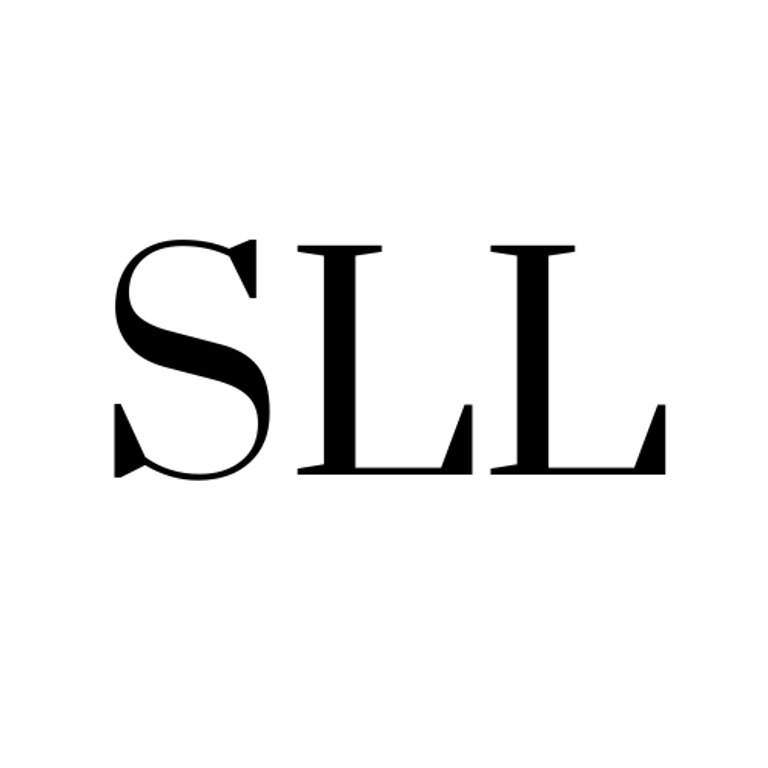The Future of Sustainable Luxury: The Top DTC Fashion Brands in 2025
Discover how leading Direct-to-Consumer (DTC) brands are redefining luxury through sustainability in 2025, with innovative eco-friendly designs and ethical craftsmanship.
By Elena A. Hart
2/13/2025
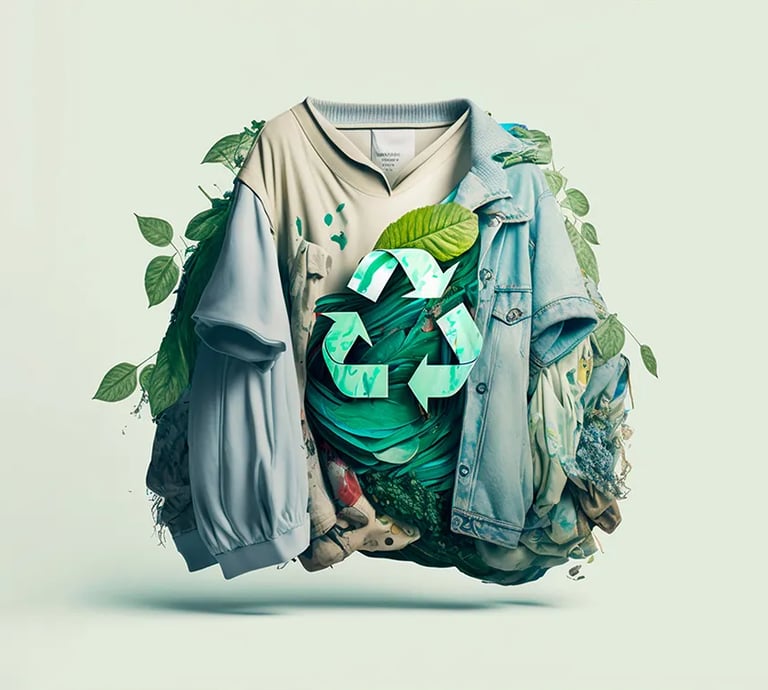

Why Sustainability Matters in 2025: The Future of Luxury and Ethical Fashion
Image credit: medium.com
In 2025, the fashion industry faces mounting pressure to adopt sustainable practices due to environmental concerns and evolving consumer expectations. The industry's significant contribution to pollution and waste has led to increased scrutiny and calls for change (Business of Fashion). Consumers are now more informed and demand transparency, ethical sourcing, and eco-friendly products (McKinsey & Company – The State of Fashion 2025). Brands that fail to integrate sustainability risk losing relevance and market share. Embracing sustainable practices not only mitigates environmental impact but also aligns with the values of modern consumers, ensuring long-term viability in a competitive market. As regulations tighten and awareness grows, sustainability has become a critical factor in the success and reputation of fashion brands.
All images are courtesy of the respective brands and used for illustrative purposes only. SLL curates products we love and trust. Some links on our site are affiliate links, meaning we may earn a commission at no extra cost to you.
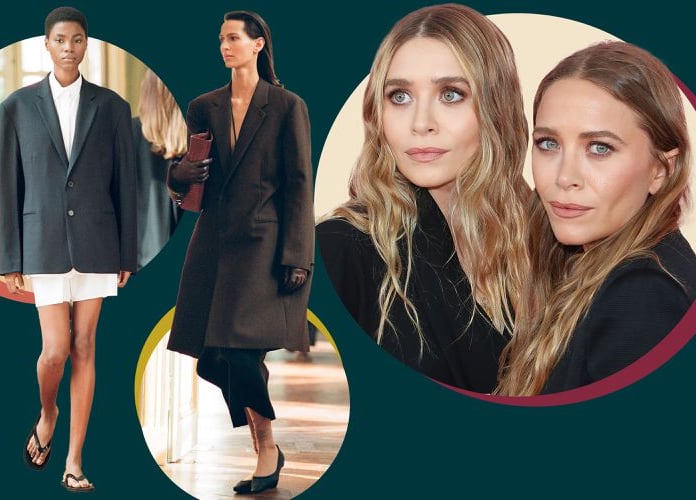

The Row: Timeless Luxury and Sustainable Fashion
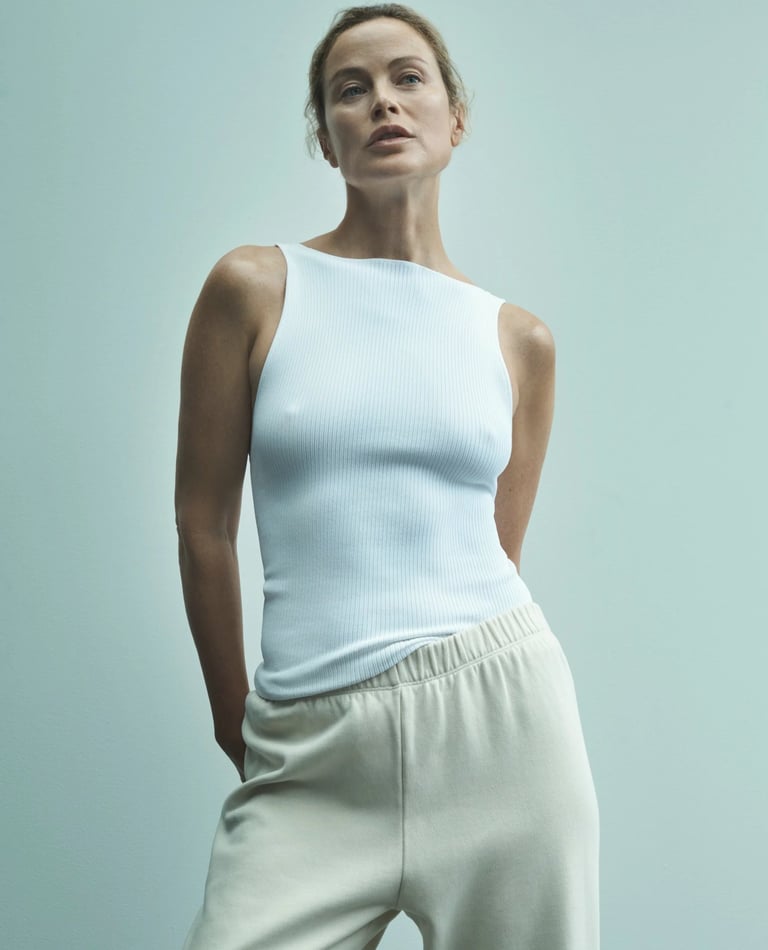

Another Tomorrow: Pioneering Sustainable Luxury Fashion
Launched in 2020, Another Tomorrow is a luxury fashion brand that places sustainability at its core. The brand offers ethically sourced, environmentally friendly garments, ensuring transparency throughout its supply chain. Each piece is accompanied by a digital passport, providing consumers with information about its origin and production (Vogue – Luxury Fashion’s Shift to Sustainability). Another Tomorrow's commitment to circular fashion includes using organic materials and promoting garment recycling. In 2025, the brand continues to lead in sustainable luxury, appealing to consumers who value both style and ethics.
Founded by Mary-Kate and Ashley Olsen, The Row epitomises luxury through its commitment to exceptional quality and timeless design. Established in 2006, the brand offers a range of ready-to-wear, handbags, and footwear that emphasise clean lines and fine fabrics. The Row's minimalist aesthetic appeals to discerning consumers seeking understated elegance. In recent years, the brand has taken steps towards sustainability by sourcing eco-friendly materials and ensuring ethical production processes (WWD – The Role of Sustainability in Luxury Fashion). This dedication to responsible luxury aligns with the growing demand for sustainable fashion in 2025.
Discover The History of The Row Fashion brand on instyle.com
Image credit : Instyle.com
CONSCIOUS_____________
PURITY___________________
Image courtesy of: Another Tomorrow
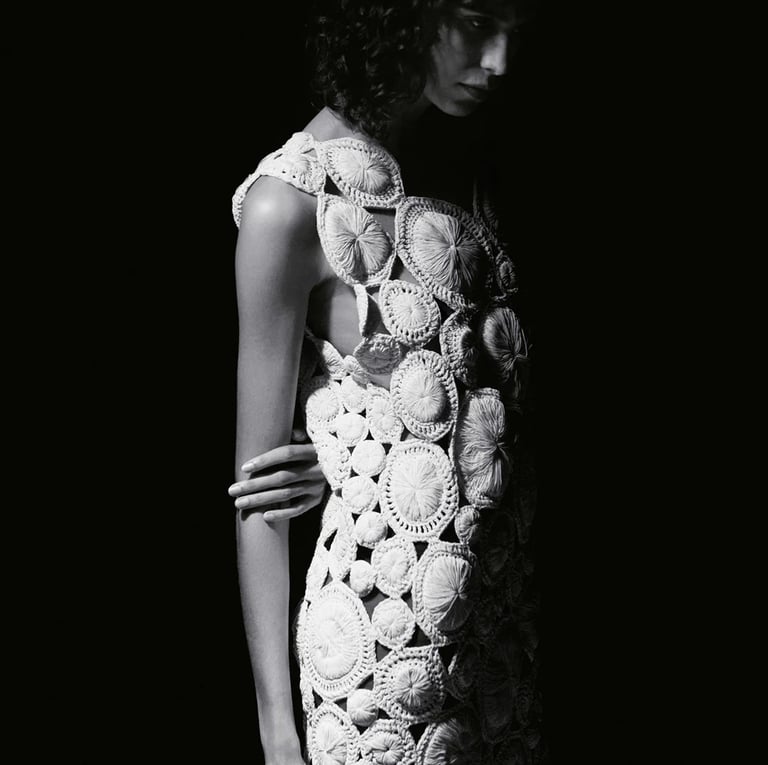

Khaite: Modern Luxury Meets Sustainable Fashion
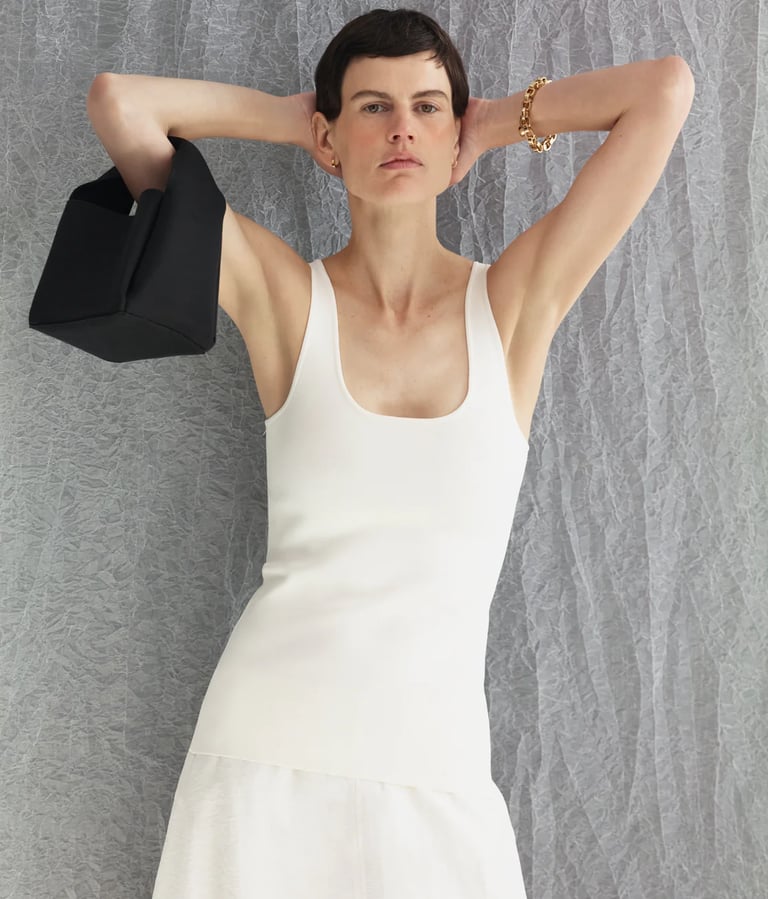

Toteme: Scandinavian Minimalism and Sustainable Fashion
Established in 2014 by Elin Kling and Karl Lindman, Toteme offers a Scandinavian approach to luxury fashion, focusing on minimalist designs and high-quality materials. The brand's collections feature timeless pieces that emphasise simplicity and functionality. Toteme has embraced sustainability by prioritising durable fabrics and ethical manufacturing processes. In 2025, the brand's dedication to creating long-lasting, versatile garments aligns with the growing consumer demand for sustainable and responsible fashion (How to Build a Sustainable Wardrobe Without Sacrificing Style).
Founded in 2016 by Catherine Holstein, Khaite has become synonymous with modern luxury, offering a range of ready-to-wear collections that balance structure and fluidity. The brand is known for its high-quality fabrics and meticulous attention to detail. In response to the increasing importance of sustainability, Khaite has begun incorporating eco-friendly materials and ethical production methods into its designs. By 2025, Khaite's commitment to responsible fashion resonates with consumers seeking both luxury and sustainability (Best Sustainable Luxury Brands to Watch in 2025).
Image courtesy of: Khaite
EFFORTLESS____________
STRUCTURE_____________
Image courtesy of: Toteme
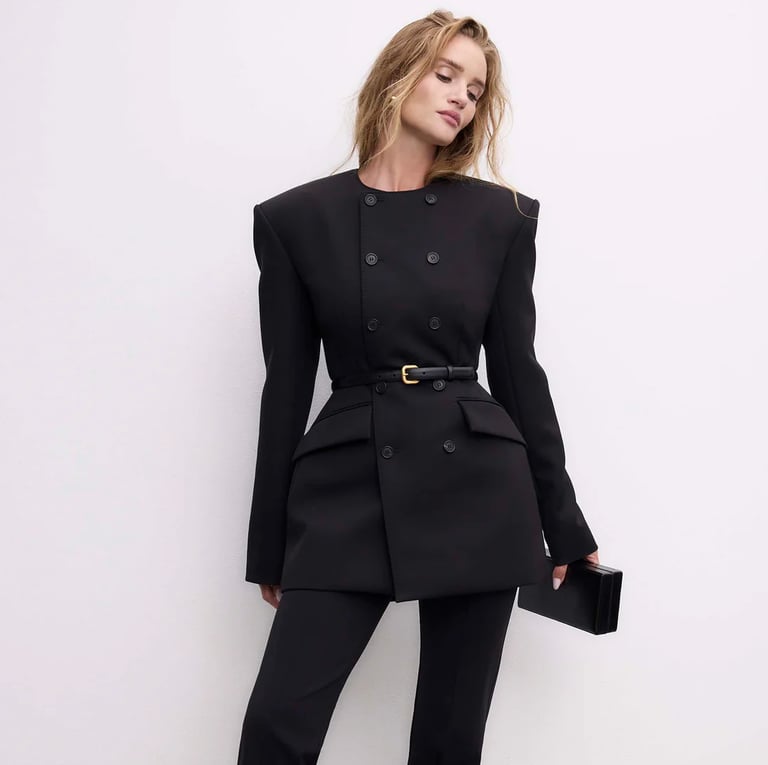

Wardrobe.NYC: The Capsule Wardrobe Revolution
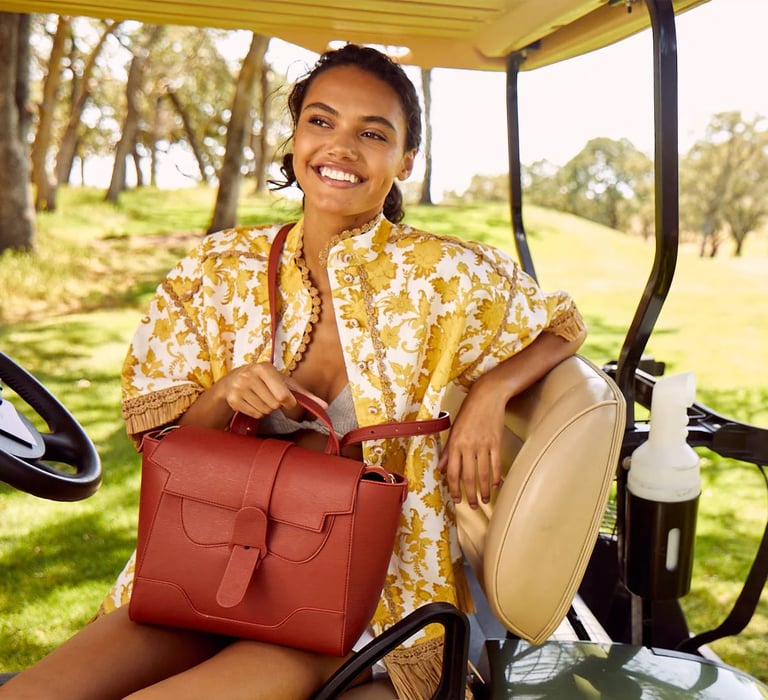

Senreve: Functional Luxury with a Sustainable Edge
Founded in 2016, Senreve has redefined luxury handbags by merging versatility with sustainability. Designed for the modern professional woman, Senreve bags are crafted with a commitment to ethical production and durable materials. The brand prioritises sustainability by using eco-conscious leather alternatives and ensuring responsible manufacturing practices. By 2025, Senreve continues to lead in functional, elegant accessories that align with sustainable luxury trends (Senreve All Bags Collection).
Founded in 2017 by Christine Centenera and Josh Goot, Wardrobe.NYC is redefining luxury fashion through its minimalist and essentialist approach. The brand focuses on capsule collections designed for longevity, encouraging consumers to buy fewer but higher-quality pieces. Wardrobe.NYC is committed to sustainability by producing in small batches, reducing waste, and using eco-friendly materials wherever possible. By 2025, the brand continues to lead the movement towards slow fashion, appealing to a growing audience that values both style and sustainability (The Future of Direct-to-Consumer Fashion Brands).
Image courtesy of: Wardrobe.Nyc
VERSATILE____________
ESSENTIAL_____________
Image courtesy of: Senreve
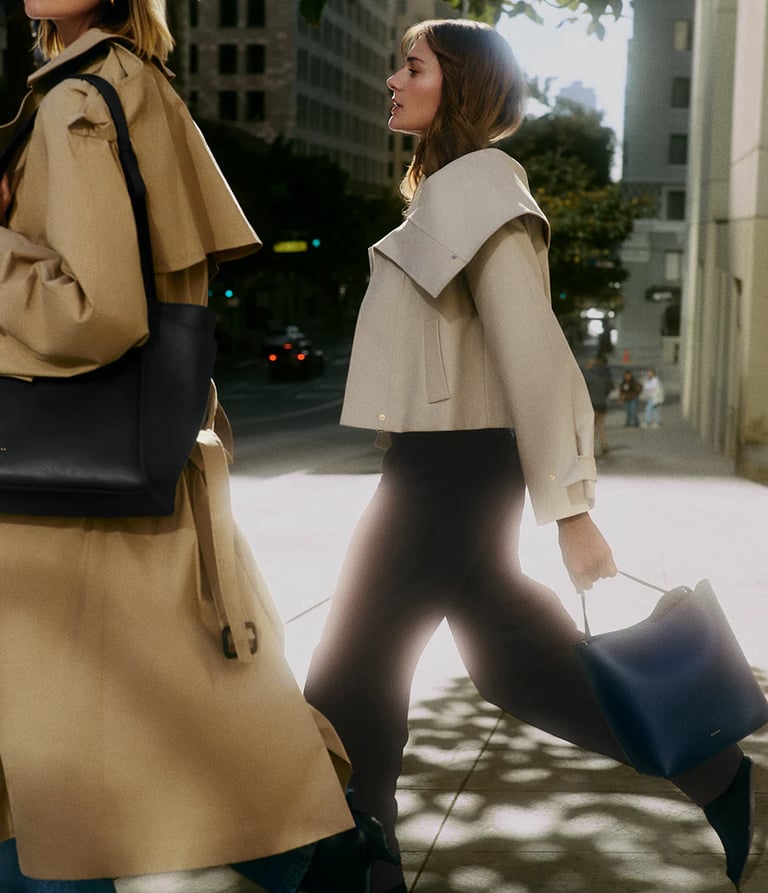

Cuyana: Timeless, Sustainable Luxury Fashion
Final Thoughts: The Future of Sustainable Luxury in 2025
As we move further into 2025, the landscape of luxury fashion is undergoing a radical transformation, driven by sustainability, ethical sourcing, and eco-conscious consumer demand. The rise of Direct-to-Consumer (DTC) brands has reshaped the industry, eliminating traditional retail barriers and enabling a more transparent, responsible, and customer-centric approach.
From The Row’s minimalist elegance to Another Tomorrow’s ethical innovation, and Wardrobe.NYC’s capsule wardrobe revolution, these brands are proving that luxury and sustainability can coexist seamlessly. As climate change concerns, fast fashion waste, and consumer awareness continue to grow, the demand for sustainable luxury fashion is no longer a niche—it’s a necessity.
Circular fashion models, biodegradable fabrics, and closed-loop production systems will define the next decade of high-end fashion, ensuring that brands not only remain competitive but also contribute to a greener future. The fashion industry in 2025 is no longer just about aesthetics—it’s about responsibility, longevity, and innovation.
As consumers, we have the power to drive change by supporting brands that prioritise sustainability, ethical craftsmanship, and environmental impact reduction. The brands leading this revolution are not just shaping the future of fashion—they are setting a new gold standard for sustainable luxury.
By embracing slow fashion principles, investing in timeless, high-quality designs, and demanding greater transparency, we can collectively create a more responsible, ethical, and stylish future. 🌿♻️✨
The question is no longer whether sustainable luxury is the future—it’s how fast the industry can adapt to meet the growing demand.
At Stylish London Life, we are closely observing and reporting on all things sustainable luxury. As the industry evolves, we will continue to bring our readers the latest updates, insights, and developments on ethical fashion and sustainability concerns. Stay tuned for more!
Cuyana is a premium DTC fashion brand that embraces the philosophy of “fewer, better things.” Founded in 2011 by Karla Gallardo and Shilpa Shah, the brand encourages mindful consumption by offering timeless, high-quality essentials. Each piece is crafted from responsibly sourced materials, focusing on longevity and minimal waste. Cuyana partners with ethical factories worldwide to ensure fair labour practices, aligning with the demand for transparency in 2025. With its dedication to sustainability, the brand continues to redefine luxury fashion by prioritising durability and ethical craftsmanship.
Image courtesy of: Cuyana
INTENTIONAL___________
Embrace the Art of Luxurious Living
Curated luxury experiences for discerning individuals worldwide.
© 2025. Stylish London Life. All rights reserved. Stylish London Life is not liable for the content of external websites linked to this platform. Part of SLL Global Living Ltd (16177510)
